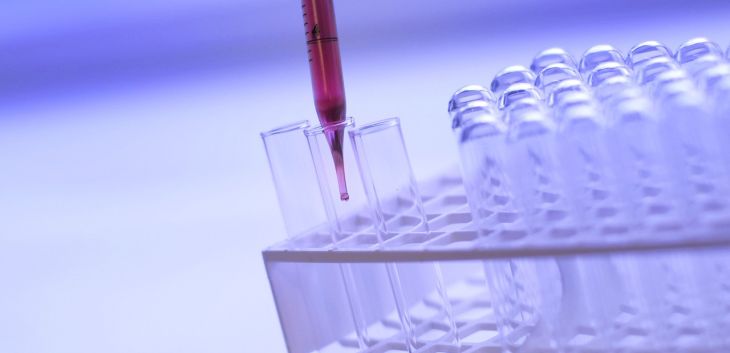Researchers have identified a drug already used for cancer patients, that, when applied to current gene therapy protocols can improve blood stem cell function threefold.
One trillion blood cells are produced every day in humans, and blood stem cells are the only cell types in our body capable of producing all blood cell types over our lifespan, giving them immense regenerative potential.
Blood stem cell gene therapy is a ground-breaking treatment that currently provides the only cure to more than ten life-debilitating genetic diseases and has already saved the lives of more than two million people with blood cancers and other diseases.
These therapies take blood stem cell samples from patients, where their genetic defect is corrected in a dish before being delivered back to the patient. However, limitations persist in blood stem cell therapies because of the shelf life of the cells outside the body. When removed from their environment in the human body and cultured in a dish, most blood stem cells lose their function. The exact timing and cause of this function loss has not previously been well understood.
Now, scientists in the Laurenti Group and others at the University of Cambridge’s Cambridge Stem Cell Institute (CSCI) and Department of Haematology have pinpointed a timeline for the blood stem cells under the current gene therapy protocols, which typically take place over three days. After the first 24 hours in a dish, more than 50% of the blood stem cells can no longer sustain life-long blood production, which is before therapy would even begin in a clinical setting.
During those first 24 hours, the cells activate a complex molecular stress response in order to adapt to the dish. By studying this stress response, the team identified a solution. Through repurposing a cancer growth blocker drug (Ruxolitinib), already in use for cancer treatments, they were able to improve stem cell function in a dish by three times its former capabilities.
The group is now aiming to modify current gene therapy protocols to include this drug, providing patients with the highest number of high-quality blood stem cells and improving their outcomes.
The study is published today in the journal Blood.
Professor Elisa Laurenti at the University of Cambridge Stem Cell Institute, and senior author of the study, said: “This is really exciting because we are now in a position where we can begin to understand the huge stress that these stem cells sense when they are manipulated outside of our body. Biologically it is really fascinating because it affects every aspect of their biology. Luckily, we were able to identify a key molecular pathway which governs many of these responses, and that can be targeted by a drug which is already in use and is safe to use.
“I hope our findings will enable safer treatments for gene therapy patients. Our discovery also opens up many possibilities to better expand blood stem cells ex vivo and expand the set of disease where we can use blood stem cells to improve patients’ lives.”
Dr Carys Johnson at the University of Cambridge Stem Cell Institute, and first author of the study, said: “Although we expected that removing these cells from the body and culturing them on a plastic surface would alter gene expression, the extent of change we found was surprising, with over 10,000 genes altered and a significant stress response detected. It was also striking to discover that the majority of blood stem cells are functionally lost during gene therapy protocols, before transplantation back to the patient.
“We have identified a key bottleneck where function is lost and clinical culture could be improved. I hope that our work will drive advancements in culture protocols to better harness the power of blood stem cells and improve the safety and efficacy of clinical approaches.”
Reference
C.S. Johnson, M.J. Williams, K. Sham, et al. ‘Adaptation to ex vivo culture reduces human hematopoietic stem cell activity independently of cell cycle.’ Blood 2024; DOI: 10.1182/blood.2023021426
Story written by Laura Puhl, Cambridge Stem Cell Institute.















